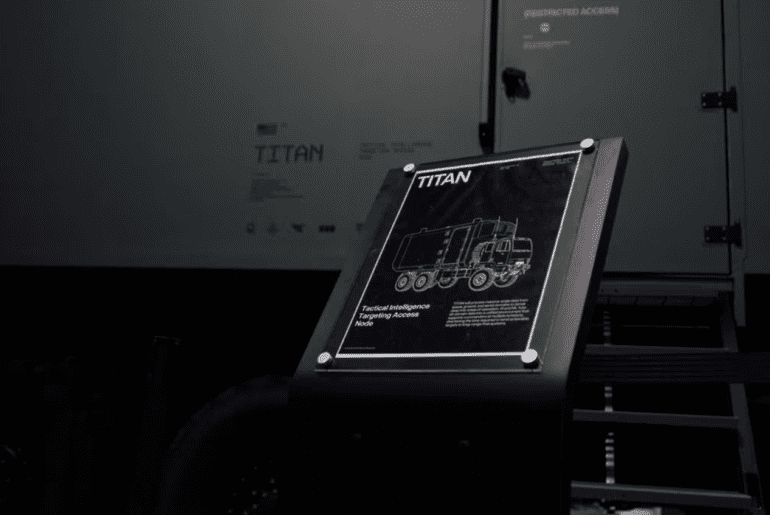- Palantir was chosen as prime contractor for the next phase of the Army’s TITAN ground station program.
- The agreement entails the delivery of 10 prototypes for advanced data fusion and AI capabilities.
- TITAN is crucial for the Army’s multi-domain operations, integrating data from diverse platforms.
- Palantir will supply both basic and advanced variants of ground stations over 24 months.
- The program emphasizes software-defined solutions and AI integration for real-time intelligence.
- Collaboration with industry leaders to enhance data processing and decision-making.
- Soldier feedback is integral for iterative improvements and refinement of TITAN systems.
- The program reflects the Army’s commitment to integrating cutting-edge technology for battlefield advantage.
Main AI News:
In a significant move forward, the Army has selected Palantir as the primary contractor for the next phase of its Tactical Intelligence Targeting Access Node (TITAN) ground station initiative. The program aims to equip soldiers with cutting-edge data fusion and deep-sensing capabilities through artificial intelligence and complementary tools. Palantir’s USG subsidiary has clinched a $178.4 million other transaction agreement to supply 10 prototypes, as announced by the company on Wednesday.
TITAN stands out as a pivotal element in the Army’s multi-domain operations (MDO) strategy, tasked with integrating diverse data from various platforms to enhance situational awareness on the battlefield. Under the terms of the new agreement, Palantir will deliver five “basic” and five “advanced” versions of the ground station over a 24-month period.
Bryant Choung, Palantir’s senior vice president for defense technology, emphasized the software-centric nature of the program, highlighting its modularity and adaptability. The advanced variant, designed for higher echelons, adopts a Family of Medium Tactical Vehicles (FMTV) form factor, while the basic variant, optimized for tactical operations, utilizes a Joint Light Tactical Vehicle (JLTV) form factor.
Palantir USG President Akash Jain hailed the TITAN system as the Army’s “first AI-defined vehicle,” underscoring its significance in modern warfare. Choung emphasized the incorporation of artificial intelligence and machine learning capabilities into the platform, aimed at enhancing real-time actionable intelligence for soldiers.
The TITAN initiative aims to leverage data from space, air, and terrestrial sensors, integrating systems and technologies from various industry leaders. Choung outlined the objectives of integrating AI into decision-making processes, ultimately aiming to enhance soldiers’ capabilities while reducing complexity and decision timelines.
The partnership between Palantir and its collaborators seeks to provide comprehensive support, encompassing computing, power, shelter, assembly, and capabilities, alongside AI and software functions. The Army’s recognition of TITAN’s transformative potential underscores its commitment to empowering soldiers with advanced technological tools.
Palantir’s selection follows a competitive prototyping process, positioning the company to deliver game-changing capabilities to the Army. The upcoming phase will involve additional soldier touch points, facilitating iterative improvements and refinements based on operational feedback.
As the program progresses, designated units will refine tactics, techniques, and procedures for deploying these cutting-edge tools. Brig. Gen. Wayne “Ed” Barker highlighted the importance of adapting to evolving operational requirements and integrating emerging capabilities into existing modernization efforts.
Choung emphasized the Army’s iterative approach to rapid prototyping and system refinement, underlining the collaborative efforts between stakeholders to optimize TITAN’s effectiveness in future operations. As the program advances, the Army remains committed to leveraging innovative solutions to maintain superiority on the modern battlefield.
Conclusion:
The selection of Palantir as the primary contractor for the TITAN ground station program signals a significant advancement in the defense technology market. With its emphasis on AI integration and real-time intelligence capabilities, Palantir’s role underscores the growing importance of data-driven solutions in modern warfare. This decision not only positions Palantir as a key player in defense contracts but also highlights the evolving landscape of military operations, where advanced data fusion and AI technologies are paramount for maintaining a competitive edge. Other industry players may need to adapt their offerings to align with the shifting priorities and requirements of military modernization efforts.

